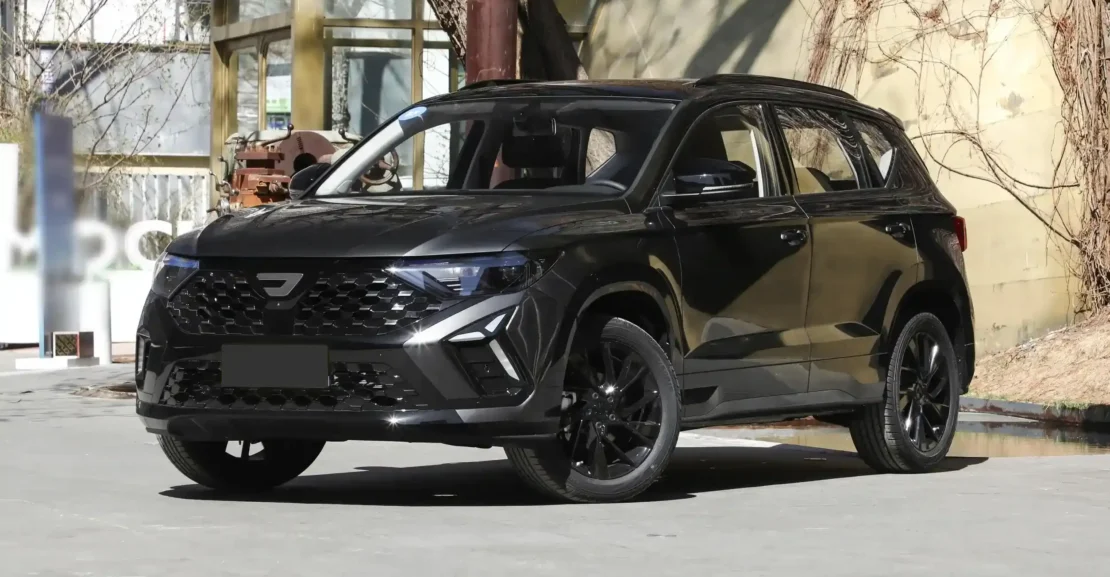1. What Are Tariffs on Chinese Cars?
Tariffs are taxes imposed by governments on imported goods, designed to make foreign products more expensive and protect domestic industries. In the case of Chinese cars , tariffs are often part of broader trade policies aimed at addressing trade imbalances, intellectual property concerns, and national security issues between China and importing countries, particularly the United States.

2. Why Are Tariffs Imposed on Chinese Cars?
Several factors contribute to the imposition of tariffs on Chinese cars:
1. U.S.-China Trade Tensions
- Trade Imbalances : The U.S. has long criticized China for its trade surplus, leading to retaliatory measures such as tariffs on Chinese goods, including automobiles.
- Intellectual Property Concerns : Allegations of intellectual property theft and forced technology transfers have fueled tensions, prompting the U.S. to impose tariffs as a punitive measure.

2. Protection of Domestic Industries
- Supporting Local Automakers : Tariffs are intended to protect U.S. automakers like Ford, General Motors, and Tesla from competition with cheaper Chinese imports.
- Job Preservation : By discouraging imports, tariffs aim to preserve jobs in the domestic automotive sector.
3. National Security Concerns
- Supply Chain Risks : Dependence on Chinese manufacturing and technology is viewed as a potential national security risk, leading to tariffs as a safeguard.
- Critical Technology : Electric vehicles (EVs) and advanced automotive technologies are seen as strategic assets, prompting efforts to limit Chinese influence.

3. How Do Tariffs Affect Chinese Cars?
Tariffs have far-reaching consequences for Chinese automakers, consumers, and the global automotive market:
1. Increased Costs for Chinese Automakers
- Higher Import Prices : Tariffs increase the cost of importing Chinese cars, making them less competitive in price-sensitive markets like the U.S.
- Reduced Profit Margins : To remain competitive, Chinese automakers may absorb some of the tariff costs, reducing their profitability.
2. Limited Market Access
- Barriers to Entry : High tariffs discourage Chinese automakers from entering markets like the U.S., where compliance costs and pricing pressures are already significant.
- Focus on Other Markets : Instead of targeting the U.S., many Chinese brands focus on regions with lower tariffs, such as Europe, Southeast Asia, and Africa.
3. Impact on Consumers
- Higher Prices for Buyers : Tariffs ultimately lead to higher prices for consumers, making Chinese cars less affordable.
- Limited Choices : With fewer Chinese cars available, consumers have fewer options to choose from, particularly in the affordable and EV segments.
4. Shift Toward Localization
- Manufacturing in Target Markets : To bypass tariffs, some Chinese automakers are considering setting up manufacturing plants in the U.S. or partnering with local companies.
- Joint Ventures : Collaborations with established U.S. automakers can help Chinese brands navigate regulatory and tariff barriers.
4. Examples of Tariffs on Chinese Cars
Here are some real-world examples of tariffs impacting Chinese cars:
1. U.S. Tariffs on Chinese Vehicles
- In 2018, the U.S. imposed a 25% tariff on Chinese-made vehicles as part of the ongoing trade war. This effectively doubled the import duties on Chinese cars, making them significantly more expensive.
- For example, a Chinese car priced at $30,000 would incur an additional $7,500 in tariffs, raising its total cost to $37,500.

2. Retaliatory Measures by China
- In response to U.S. tariffs, China imposed its own tariffs on American-made vehicles, creating a cycle of trade restrictions that impacted global supply chains.
3. European Tariffs
- While not as severe as U.S. tariffs, the European Union has also imposed tariffs on Chinese cars in certain cases, particularly to protect its domestic EV manufacturers.
5. Opportunities Despite Tariffs
Despite the challenges posed by tariffs, there are opportunities for Chinese automakers to succeed in international markets:
1. Focus on Electric Vehicles (EVs)
- Global EV Demand : As the world shifts toward sustainable mobility, Chinese EV manufacturers like BYD and NIO can capitalize on growing demand in markets that prioritize green energy.
- Battery Leadership : China dominates the global supply chain for EV batteries, giving its automakers a competitive edge.

2. Partnerships and Subsidiaries
- Collaborations with Foreign Brands : Joint ventures and partnerships with established automakers can help Chinese brands enter new markets while sharing costs and risks.
- Subsidiary Brands : Companies like Geely (owner of Volvo and Lynk & Co) have successfully entered foreign markets through subsidiary brands.
3. Localization Strategies
- Building Manufacturing Facilities : Establishing production facilities in target markets can help Chinese automakers avoid tariffs and reduce costs.
- Local Supply Chains : Developing local supply chains can further reduce dependency on imports and improve competitiveness.
FAQs About Tariffs on Chinese Cars
Q1: How much are tariffs on Chinese cars in the U.S.?
As of 2018, the U.S. imposed a 25% tariff on Chinese-made vehicles, in addition to existing import duties. This significantly increases the cost of Chinese cars in the U.S. market.
Q2: Do tariffs apply to all Chinese cars?
Yes, tariffs generally apply to all vehicles manufactured in China. However, some exceptions may exist for specific models or components.
Q3: Can Chinese automakers avoid tariffs?
Yes, by establishing manufacturing facilities in target markets or partnering with local companies, Chinese automakers can avoid tariffs and reduce costs.
Q4: How do tariffs affect electric vehicles (EVs)?
Tariffs increase the cost of Chinese EVs, making them less competitive in price-sensitive markets. However, the growing demand for EVs and China’s leadership in battery technology provide opportunities for growth despite tariffs.
Q5: Will tariffs on Chinese cars be reduced in the future?
It depends on geopolitical developments and trade negotiations. If U.S.-China trade relations improve, tariffs could be reduced or eliminated.

